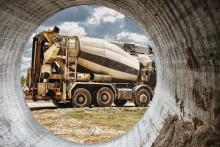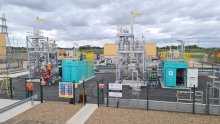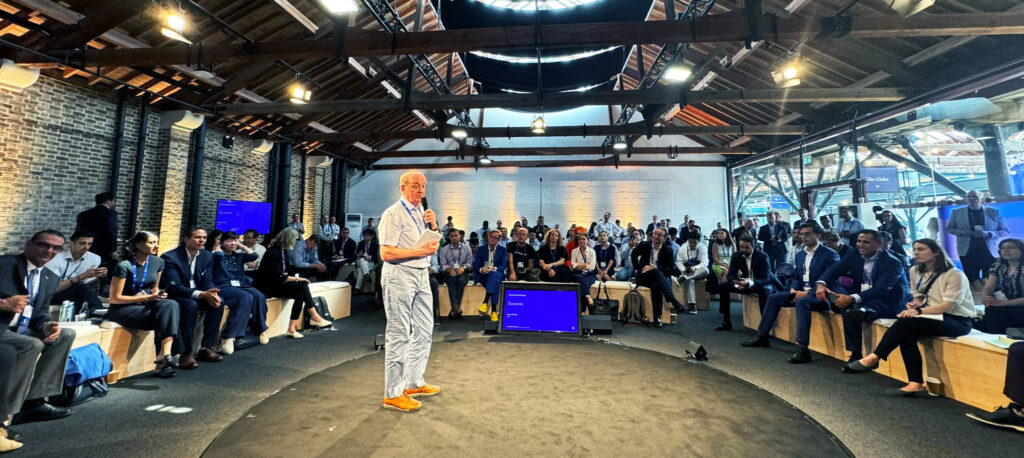
"Reflecting on the recent Breakthrough Energy Summit I attended in London, I was absolutely blown away by the huge progress made with decarbonisation technologies. I was struck by the energy and commitment of everyone I met to deliver scalable solutions that can tackle our climate challenge at speed. At a time when the problems we face seem insurmountable, it was good to be reminded that the technology we need already exists. Bill Gates is right: The green revolution is in full swing. Now, we need to commit to the changes we need to make to accelerate adoption. And my industry is no exception.
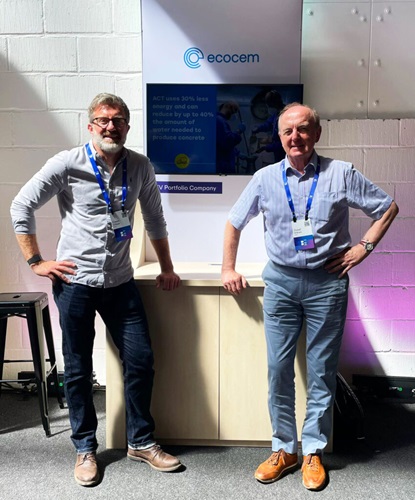
"I spoke at a session on solving for carbon in the Built Environment, which focussed on Embodied and Operational emissions. I called on industry, governments and policymakers to work together to raise our ambitions for the cement industry to become the first hard-to-abate industrial sector to deliver decarbonisation on a trajectory compliant with a 1.5°C target. This requires a global decarbonisation of cement manufacture of 50% by 2030 (IPCC 2023).
"From Le Grand Paris Express to Dublin's Aviva Stadium and the UK's high-speed railway HS2, our company Ecocem has already achieved a cumulative reduction of 18 million tonnes of CO2. To put this in perspective, it would take over 800 million trees to capture this amount of CO2 in a year.
Let's be clear about the scale of the problem with cement
"If the cement industry were a country, it would be the planet's third-largest emitter of carbon dioxide, after the US and China and significantly ahead of the EU. Responsible for almost 8% of global carbon emissions, cement production is recognised as one of the most polluting industries in the world.

"Embodied CO2 in construction is 11% of all global emissions, and clinker, the critical ingredient in cement, generates 65% of these. On average, a tonne of cement produces 600Kg of CO2. The bulk of these emissions is the unavoidable by-product of clinker manufacture. The solution lies in eradicating as much CO2 as possible from the manufacturing process by using less clinker. Rapid and sustained decarbonisation of this sector would make a meaningful difference in the battle against climate change. Radically reducing cement's clinker content is the most logical decarbonisation pathway.
We already have the solutions
"The problem is enormous, but the good news is that technology exists today that can deliver a 70% reduction in clinker use and, as a result, CO2 emissions. Our ACT technology can do this competitively while delivering all the performance requirements of any concrete it is used to make. Most importantly, technology can do this globally and at a large scale.
"Speed is of the essence, and fast-tracking solutions are essential. The cost is not a barrier. Shifting to manufacturing low-carbon cement using this technology requires no major change to current plant infrastructure and uses raw materials, energy and water with much greater efficiency.
What's needed now to make this a reality for the rest of the industry?
"The key is overcoming industry inertia. Changing a deeply embedded, economically viable, but heavily polluting business model remains challenging.
"As an industry, we need to look at a range of technologies. Our current industry focus on a single solution is limiting us. Carbon Capture and Storage will, at best, be a limited solution for economic and environmental reasons: too slow to deliver and too expensive. The construction industry needs to adopt low-carbon cement technologies that enable businesses to control costs and become more competitive.
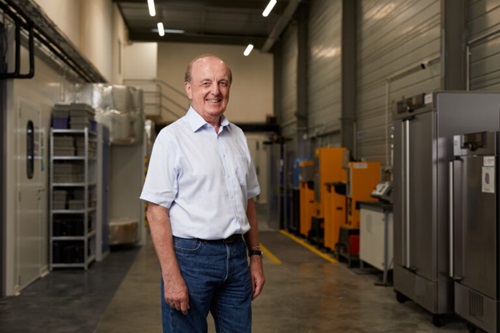
"Public policy needs to catch up with the technology and move from ignoring alternative solutions to eradicating carbon from the production process and prioritise using alternative materials and approaches.
"The EU and the US must lead by example, but today, they represent only 7% of global CO2 emissions from cement manufacture. 93% of emissions are generated outside of the US and Europe A global policy response and technological transfer beyond Europe and the US is essential.
"Regulation and revised targets can encourage the global cement industry to broaden its focus to embrace low-cost alternative technology solutions and deliver a 50% reduction in emissions by 2030.
"But we must also support innovation to accelerate the rapid deployment and transfer of low carbon cement technology. The solution must also be driven by governments. They have the power to accelerate change through public procurement without increasing the tax burden on the public by requiring the use of the latest low carbon solutions.
We must reset our ambition - will we step up to the challenge?
"As I have outlined, the cement industry can become the first hard-to-abate industrial sector to decarbonise on a trajectory compliant with 1.5°C of global warming. We can achieve a 50% reduction in carbon emissions globally by 2030, reach a 100% reduction by 2040, with negative emissions post-2040.
"The need to fast-track decarbonisation is obvious and urgent. The global cement industry now has the technology for rapid and low-cost reduction of CO2 emissions. We must seize this opportunity, and here at Ecocem, we will continue to lead the way on cement decarbonisation technologies with renewed determination and enthusiasm."





